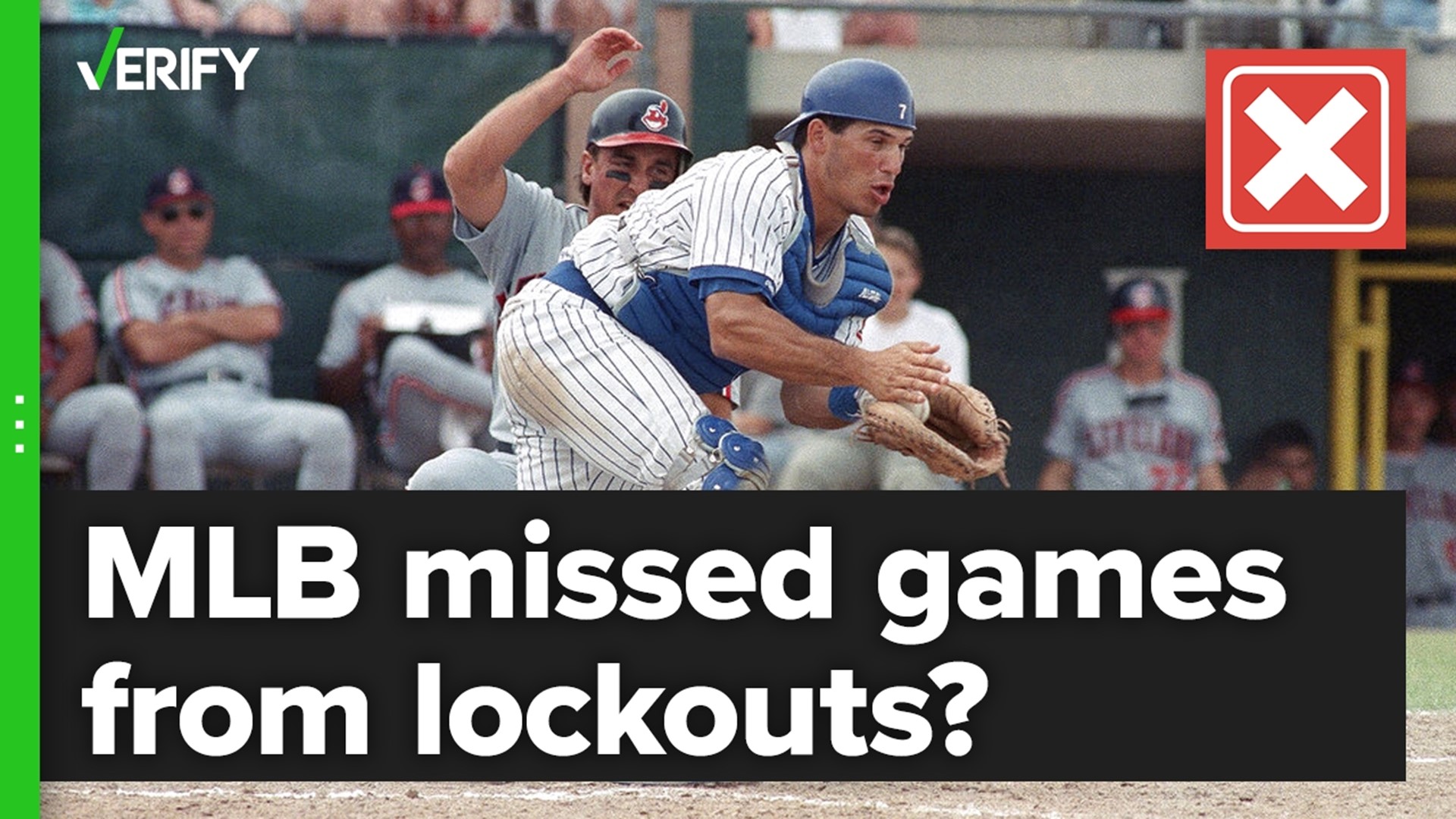UPDATE: Major League Baseball (MLB) and the MLB Players' Association (MLBPA) have agreed to a new collective bargaining agreement, pending ratification from both sides. The MLB announced a full 162-game schedule would be played this season, despite the league postponing the start of the season until April 14. Four series originally scheduled for the beginning of the season will be rescheduled and played at a later date by every MLB team.
The original story continues as written below:
Major League Baseball's spring training games won't begin on time in 2022. The MLB announced on Feb. 18 that the preseason games, originally set to begin Feb. 26, will now be delayed at least a week until March 5.
The reason? The MLB owners’ lockout.
On Dec. 2, 2021, immediately after the last collective bargaining agreement between the MLB owners and the players expired on Dec. 1, the owners commenced a lockout of major league players while the two sides negotiated on a new agreement.
But now the scheduled start of Major League Baseball’s opening day, March 31, is just over a month away, and there is still no agreement between the players and owners. The possibility of a delayed start to the MLB season and missed games grows larger each day.
THE QUESTION
Has the MLB ever missed any regular season games due to a lockout?
THE SOURCES
THE ANSWER
No, the MLB has never missed any regular season games because of an owner lockout. It has missed games for player strikes.
WHAT WE FOUND
The MLB says there have been eight work stoppages prior to the current stoppage — three owner lockouts and five player strikes. None of the three previous owner lockouts in MLB history have resulted in canceled regular season games, but three of the player strikes have canceled games — including an entire postseason during the 1994-1995 strike.
The Bureau of Labor Statistics (BLS) describes a lockout as a temporary denial of employment upon employees that is initiated by management, or in MLB’s case, the owners. It describes a strike as a temporary stoppage of work by a group of workers, in this context, the MLB players. Both strategies are used in labor disputes to force the other side to negotiate.
According to the MLB Players’ Association (MLBPA), the MLB’s first lockout, in 1973, occurred just before the official start of spring training games on March 1 that year. The players and owners agreed to a new contract on Feb. 25, ending that lockout before spring training began.
The owners locked the players out again in 1976, and this time the dispute did cut into the preseason, according to the BLS. Owners locked players out of training camps for 17 days before then-commissioner Bowie Kuhn ordered them opened, despite the two sides still not agreeing to a new contract by then. The season continued uninterrupted and a new agreement was signed in August of that year.
The last lockout before the current one was in 1990, which continued into mid-March. The BLS said the 1990 lockout delayed the start of the season by one week, but the league avoided canceling games by pushing back the start of the postseason by one week, as well.
Most of the labor stoppages in MLB history have come in the form of player strikes, including every stoppage in which games have been canceled. The 1972 player strike resulted in the cancellation of 82 games, the BLS said, which was a loss of somewhere between five and 10 games for each team. The next labor dispute to cancel games was a midseason player strike in 1981.
But the longest and most well-known player strike was in 1994 and 1995. The players began their strike on Aug. 12, 1994, the MLBPA says, and by September the MLB chose to cancel the rest of the regular season and the postseason. The 1995 season then started late and operated on a shortened 144-game regular season schedule. The BLS said the strike was the longest ever in professional sports to that point, and is now the second longest after the 2004 NHL strike surpassed it in length. The MLB went 26 years before the next labor stoppage — the ongoing lockout.
CORRECTION: An earlier version of this story stated that the MLB 1994-1995 strike was the longest in professional sports history. Although it was the longest strike at the time, the NHL strike in 2004 was longer. The story has been corrected to reflect that.
More from VERIFY: Yes, the NFL donates the losing Super Bowl team’s merchandise

